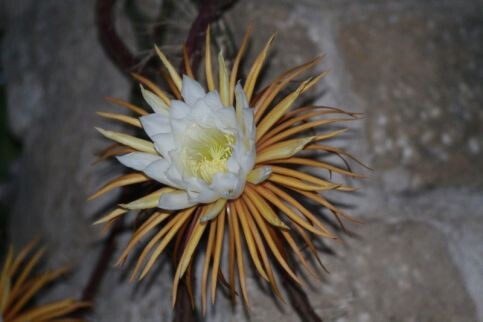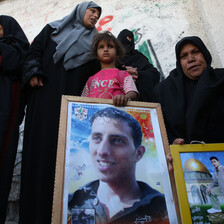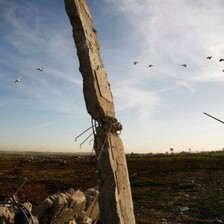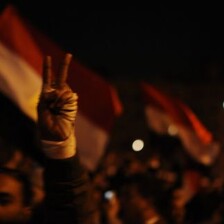The Electronic Intifada 5 July 2010

The Queen of the Night (Yasmeen El Khoudary)
The Last Queen of the Night is not the name of a mythical character, or even an ancient Oriental queen or goddess. It is not the name of a Parisian perfume or chocolate like “After 8.” It is the name of a flower, one that blooms only during the night.
A family in Gaza anxiously awaits the blooming of this beautiful flower, which blooms for only a few nights every year. Sunlight bid the city farewell, and left it with the majestic presence of the Queen of the Night. In less than 15 minutes, the Queen descended from her palace to her royal steps, and began checking on her surroundings, which lay peaceful in the darkness. The family was excitingly observing every majestic move the Queen took.
It is strange to many, but normal to this city, that this flower could only be viewed at night. The family demand that the Queen honor the garden with her presence, since their days are as unlit as their nights, and they would not be able to enjoy her majestic presence either way. At night, they used their camera’s flashlight to watch the flower and report her presence. As the sun rose, the Queen’s throne receded.
It is a beautiful name for an equally beautiful flower. It sounds like one of those names given to famous cities around the world, like Paris’s “City of Light” or Beirut’s “Pear of the Middle East.” These names were given for a reason. Well, from now on, I’ve decided that Gaza should be called “Queen of the Night” — if for anything, for the flower that blooms.
Gaza drowns in the darkness every single day and every single night. In the day, darkness is not limited to the lack of light, means of communication, hospital operations or any of the sort. Dark, in this case, is the color of the prejudice with which the city is treated. It is the description of the siege chain-sawing the city. It is the only adjective that can be given to the dungeon that our enemies want our city to become.
Yet, the Queen of the Night never fails to find her royal path to light. The flower blooms, for she has a population to look after. So does the city. The darkness which invades the city every day and every night does not stop life from going on.
If music stops at a wedding because electricity was cut off, nothing can stop the people from singing. If TV screens shut down in the middle of yet another World Cup game, no one can stop the people from calling their friends abroad and checking the score. If a desk lamp goes off, nothing can stop an eager student from lighting a candle and resuming her or his studies about the past glory of the Arabs, the countless wonders of peace, or her or his dreams of a bright, well-lit future.
Life does stop, however, when electricity goes off at a hospital. The doctors and the family of the patient stand helpless in front of the moaning beloved. The whole city stands helpless. Even the Queen herself stands helpless, and so does the rest of the world, which never fails to assume the duties and responsibilities of the helpless no matter what time or light of the day it is. The world might exclaim, “Be joyful, ye people of Gaza, for your ‘enemy’ the merciful will dump countless boxes of sewing needles and tomato ketchup on you! Be grateful! But I must warn you, be discrete, or else the envious eyes of your neighbors will eat the blessings away.”
Seeing as the city is in dire need of sewing needles and tomato ketchup, the world decides that the people of Gaza should finally be breathing a sigh of relief. The Israelis attribute their generous acts to their equally kind hearts. Yet, the Queen of the Night, the moaning patient, and the people, are unable to locate neither the sewing needles nor the tomato ketchup amidst the darkness.
The Queen of the Night is, at the end of the day, a plant like any other plant. Like any other plant, it has an age limit.
Will the Queen of Night die during the city’s reign of dark, or will it die during the city’s reign of light, if ever? Is she going to give the throne to another queen, or is she going to be the last Queen of the Night?
Yasmeen El Khoudary is a 20-year-old Palestinian, born and raised in Gaza City. While in Gaza, she graduated from the American International School (AISG) which was bombed during Israel’s invasion of Gaza of winter 2008-09. She is a recent graduate of the American University in Cairo.




